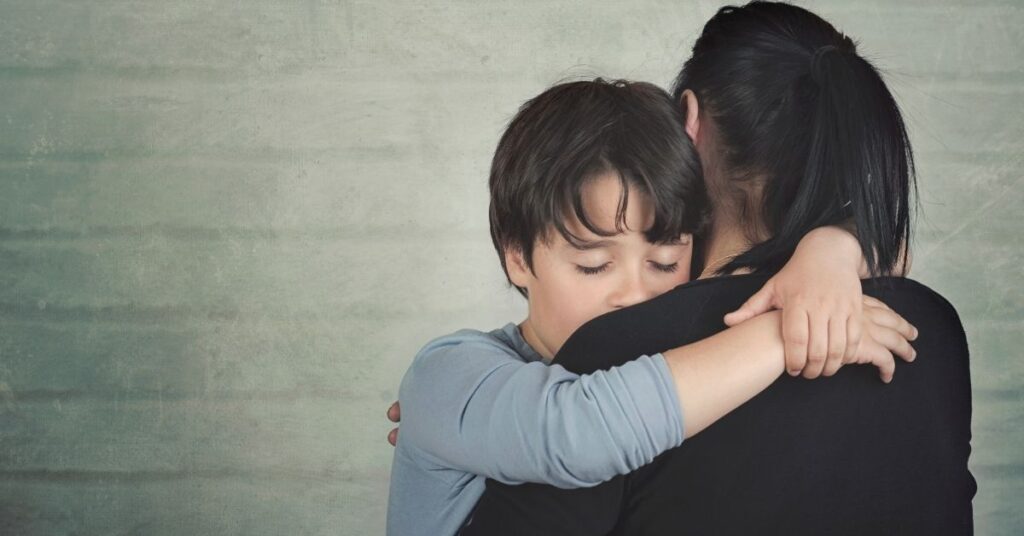Our children with autism and ADHD already deal with so much every day to try to fit into a neurotypical world that isn’t made for them. On top of that, they are at a higher risk for developing depression too. If you notice your child or teen seems down and not enjoying activities like they normally do, could it mean they may have depression? And what do you do if you think your child may be struggling with depression?
What are the signs of depression?
The Mayo Clinic defines depression as “a mood disorder that causes a persistent feeling of sadness and loss of interest. Also called major depressive disorder or clinical depression, it affects how you feel, think and behave and can lead to a variety of emotional and physical problems. You may have trouble doing normal day-to-day activities, and sometimes you may feel as if life isn’t worth living.”
Depression has a variety of symptoms, and each person may have some but not all of them. Some people may have just one depressive episode in their lives. For others, it may become more chronic with multiple episodes over years.
The Mayo Clinic lists these signs of depression on their website (these occur nearly every day for most of the day):
- “Feelings of sadness, tearfulness, emptiness or hopelessness
- Angry outbursts, irritability or frustration, even over small matters
- Loss of interest or pleasure in most or all normal activities, such as hobbies or sports
- Sleep disturbances, including insomnia or sleeping too much
- Tiredness and lack of energy, so even small tasks take extra effort
- Reduced appetite and weight loss or increased cravings for food and weight gain
- Anxiety, agitation or restlessness
- Slowed thinking, speaking or body movements
- Feelings of worthlessness or guilt, fixating on past failures or self-blame
- Trouble thinking, concentrating, making decisions and remembering things
- Frequent or recurrent thoughts of death, suicidal thoughts, suicide attempts or suicide
- Unexplained physical problems, such as back pain or headaches”
Are people with autism and ADHD at higher risk for depression?

Several research studies have shown that children and adolescents with autism and ADHD are at least two times more likely to develop depression than their neurotypical peers. An increased risk of depression is also shown for autistic and ADHD young adults.
Why? Scientists aren’t really sure what causes this increased risk. Some studies have indicated that social camouflaging may contribute to depression, but more research is needed to determine what is behind the causes.
What to do if you think your child may have depression
If you see any of the signs above in your child or teen, talk to your child’s doctor as soon as possible. Depression does not get better on its own. Your child will need help.
To diagnose depression, your child’s doctor will complete a psychiatric exam, along with potentially a physical exam and lab tests (to rule out physical reasons behind your child’s behavior such as thyroid issues). They will base their findings on criteria from the Diagnostic and Statistical Manual of Mental Disorders (DSM-5).
Our son J was diagnosed with depression at age 11, and it’s something he still struggles with in his teen years. I won’t go into details because this subject is very personal to J. However, we took him for diagnosis and treatment as soon as we noticed the signs. Fortunately, he already was receiving cognitive therapy with his long-time clinical therapist, and we talked to his pediatrician about diagnosis and medication treatment. She encouraged us to find a psychiatrist, who diagnosed and managed his neuroscience medications. It is heart breaking to go through these episodes with J, and I am thankful that he has the help he needs through both psychotherapy and medicine.
Treatment for depression

Research has shown consistently that the best treatment for depression is the combination of both psychotherapy (i.e., cognitive behavioral or talk therapy) and medication. Some pediatricians are comfortable managing medications; however, others may refer your child to a psychiatrist or psychiatric nurse practitioner for medication management.
Finding a child and adolescent psychiatrist isn’t easy these days as there is a shortage of them. J’s psychiatrist who he has seen for the last several years retired late last summer. I was glad he told me about three months prior to his retirement because it took a while for me to find J a new psychiatrist.
One option is obtaining care remotely with a nurse practitioner (NP) through Psychology Today to manage your child’s medication. This is a route that many are taking because it is so difficult to find a local psychiatrist. Many of the NPs accept health insurance, and they are licensed to write prescriptions in their designated states. You will need to check with your health insurance to see if any of them are in-network providers. If not, be prepared to pay out-of-network rates for their services. That may be a better option than no provider at all.
If your child with autism and ADHD has been diagnosed with depression, share your tips for finding treatment and helping your child in the comments below. Let’s encourage one another on this journey.








